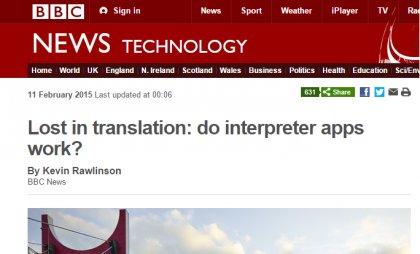There has been a great deal written about the rise of translation apps and the use of voice recognition within the translation industry. Much has been said about how it could revolutionise the way the people can communicate in different languages. But the questions still remain: How good is it and can it cope with so many variables in human language?
In a recent study, reported on the BBC website, it shows that the technology still has ground to make up when dealing with such variances as colloquialisms and more complex subjects. Professional translators and interpreters are also able to understand and translate voice inflections, subtle nuances and detailed and complex information, where the apps clearly struggle with these factors. This could have a significant impact on the results, particularly amongst the legal, medical or scientific translations.
Joseba Abaitua, an academic at the modern foreign languages department at Bilbao's University of Deusto said "But, if you start talking unexpected things with a lot of colloquialism, then the whole system breaks down." He added that the systems also need to get much better at recognising people's different accents and ways of speaking.
It stands to reason that, with the technology currently lagging quite some way behind the accuracy of a skilled translator or interpreter, business critical documents and conversations must retain the skills of a professional translator, rather than relying on the accuracy of the more risky technology option.
